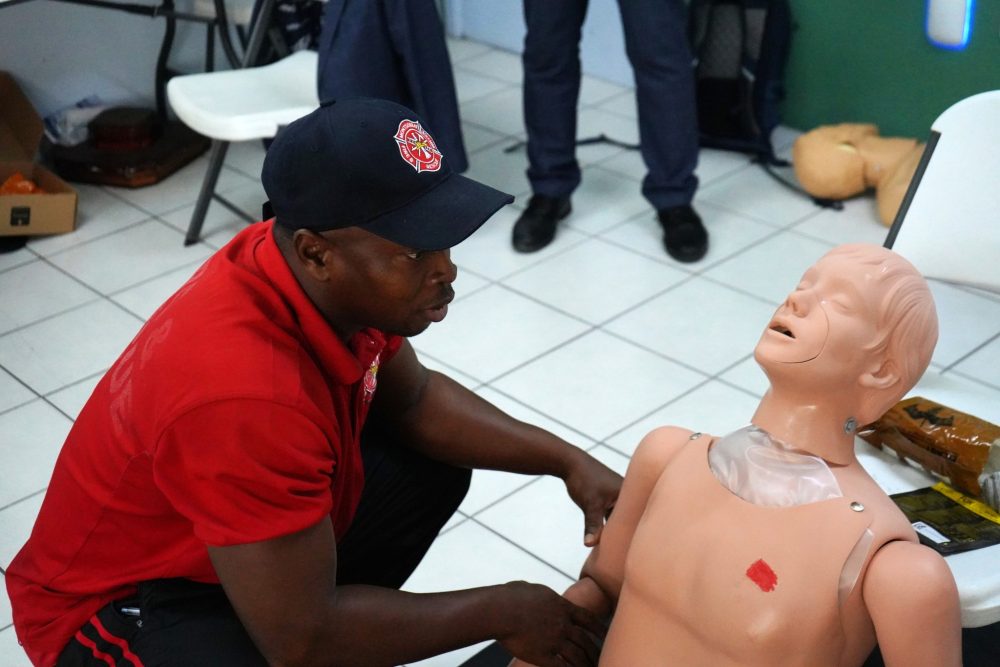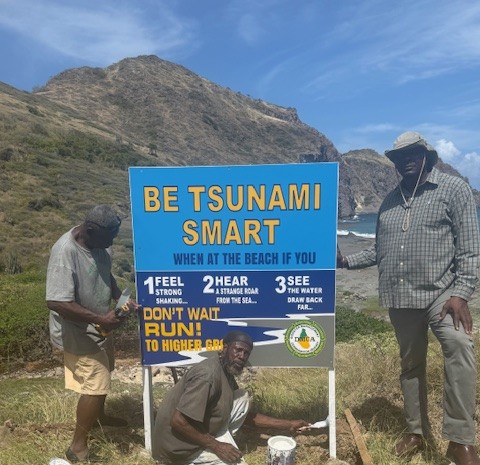
With the support of the Falkland Islands, the Government of Montserrat will become the lead source for its data on marine and terrestrial information. On Monday, November 14, a one-week programme commenced to ensure this becomes a reality.
Her Excellency the Governor Elizabeth Carriere endorsed the project which will see the Southern Atlantic islands provide skills training and knowledge to government workers from a cross-section of departments.
Director of the South Atlantic Environmental Research Institute (SAERI), Dr Paul Brickle said his team was keen to share skills and knowledge with their counterparts on Montserrat to further the goal of protecting the environment. He said that although the two UK territories were far apart geographically they did have similar environmental concerns.
Hon. Minister of Agriculture and the Environment Claude Hogan said this partnership was accelerating the goal of building up local institutions for a new and sustainable marine environment. He explained that the ultimate goal was to have ready access to the data which fishers and other entrepreneurs who rely on the ocean and coastal areas for their livelihood. Hogan said the harnessing and management of the island’s data would help us to know where were the best places for fishing and diving, how often fish pots are lost and what can be done to improve them so they do not get loose trapping fish inside.
On Wednesday, there is to be a closed session with representatives of the Waitt Institute which is conducting the Blue Halo Montserrat and Coral Cay Conservation who have been running a ridge to reef project. Both of these organisations are currently collecting data which will be useful to building up the island’s knowledge base. This knowledge, Hogan said was the “intellectual property of the government and people of Montserrat” and was necessary to secure the livelihoods of present and future generations.
A Memorandum of Understanding (MOU) on the Territory to Territory Partnership was signed in August of this year. The primary aims are to (a) develop an information management strategy designed to make use of marine and terrestrial as a critical component of its national socio-economic and environmental planning process; and (b) to formulate a strategy to implement Marine Spatial Planning and produce a Marine Spatial Plan, in the context of environmental management and socio-economic development.
The consultation will end on Friday, November 18.
Discover more from Discover Montserrat
Subscribe to get the latest posts sent to your email.



